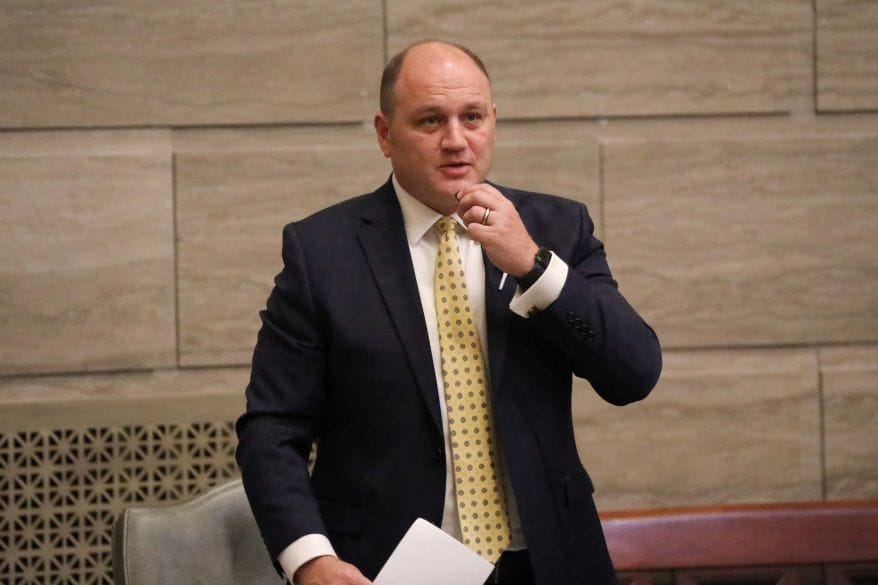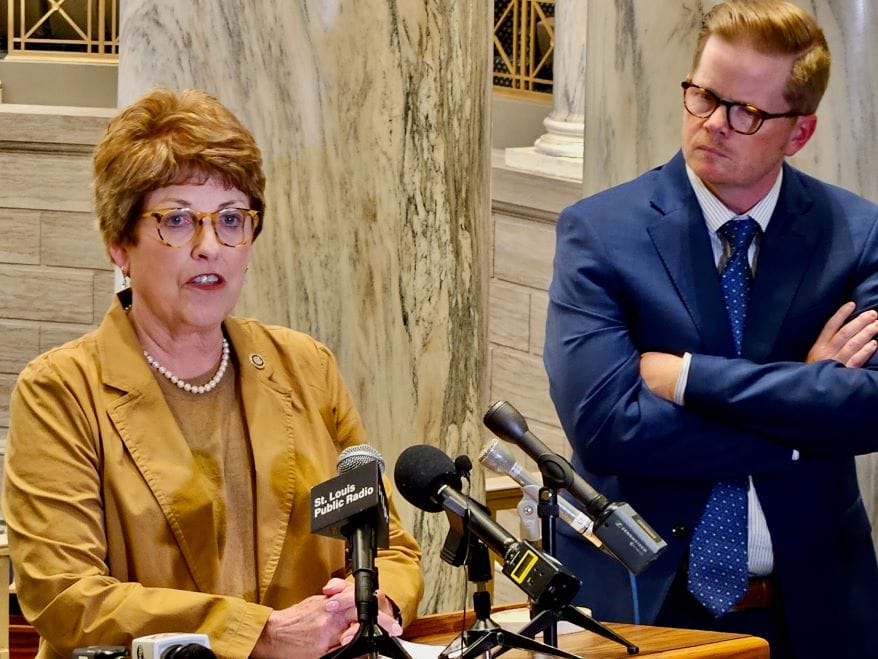GOP Infighting, Election Year Politics Could Shape 2024 Missouri Legislative Session Brace for Gridlock
Published January 2nd, 2024 at 10:34 AM
Above image credit: Missouri State Capitol in Jefferson City. (Getty Images)Missouri lawmakers return to Jefferson City on Wednesday for the start of the 2024 legislative session, and expectations aren’t high.
GOP infighting has mired the Missouri Senate in gridlock the last three years, and the wounds at the center of the turmoil seem to have only gotten worse. Across the Capitol rotunda in the House, an ethics investigation into Speaker Dean Plocher could upend the agenda and cost Plocher his job.
Election year politics hang over both chambers, with a handful of state representatives facing off in the August primary for Senate seats and five senators vying for statewide office.
Complicating matters further, medical provider taxes that are vital to sustaining the state’s Medicaid program expire this year. The last time the taxes needed to be renewed, the issue derailed the Senate and required a special legislative session during the summer.
“I would guess that a sizable amount of the session is going to be spent navigating people making campaign commercials on the House and Senate floor, bickering at each other and trying to force recorded votes that turn into campaign mailers,” said state Rep. Tony Lovasco, R-O’Fallon.
Democratic state Rep. LaDonna Appelbaum of St. Louis shares Lovasco’s sense of pessimism.
“I am greatly concerned that, because it is a campaign year, it’s going to be a s**tshow,” she said.
Freedom Caucus

Last year’s legislative session nearly set a record for futility.
Over the last 30 years, only the COVID-shortened 2020 legislative session saw lawmakers adjourn with fewer bills successfully passed and sent to the governor.
A group of Republican senators who had previously been aligned under the banner of the “conservative caucus” openly warred with GOP leadership all session in 2023, often turning to procedural maneuvers to mire the chamber in gridlock.
The drama culminated in the session’s final week, when filibusters by Republican Sens. Mike Moon of Ash Grove and Bill Eigel of Weldon Spring doomed any hopes of a functioning Senate.
Earlier this month, six Republican senators — most of whom were part of the disbanded conservative caucus — announced the formation of the Freedom Caucus.
“We’re now a part of a national network, and my hope is that all 24 Republican senators would be part of a Freedom Caucus,” said state Sen. Denny Hoskins, a Republican from Warrensburg who is running for secretary of state. “But unfortunately, as we’ve seen in the past, some Republican senators don’t look too conservative like they promised their constituents.”
The network is designed to provide research and staff support to members. But some expect the caucus to deepen the fissures that have plagued the Senate for years and fuel more dysfunction.
“It’s going to add another layer of complication every day that we go out there on the Senate floor,” said state Sen. Lincoln Hough, a Springfield Republican and chairman of the Senate appropriations committee.
Factional divides in the Senate are already raising fear of a replay of the 2021 session, when the normally routine process of renewing taxes on hospitals, nursing homes, pharmacies and ambulances — known as the federal reimbursement allowance, or FRA — splintered the Senate.
Renewal of the FRA is crucial for funding Medicaid. When it came up in 2021, the conservative caucus demanded that the FRA include an amendment barring the state from paying for some contraceptive medications and devices, and preventing Planned Parenthood from being a Medicaid provider.
When infighting killed a renewal during the regular session, lawmakers were forced to return over the summer. The FRA was renewed for three years only after 11 of the 23 Republicans present voted with all 10 Democrats to defeat the conservative caucus’ amendment.
A repeat of that turmoil — especially during an election year — is the doomsday scenario for those hoping for a smooth session.
“There’s gonna be a whole lot of people that do things for political reasons, as always,” Hough said. “It’s just gotten worse and worse and worse.”
Hoskins argues the issues being advocated by the Freedom Caucus shouldn’t be particularly controversial for Republicans.
“Some big red Republican priorities have been stymied by what I call campaign conservatives,” he said, “those Republicans that campaign as a conservative then vote as a Democrat once they get to Jefferson City.”
‘We’ll Get Things Done’

Not everyone is feeling as gloomy about the 2024 session.
“I mean, I think we’ll get things done,” said Senate Majority Leader Cindy O’Laughlin, a Shelbina Republican. “Will we get everything done that we want to do? No, we never do. But I’m an optimist.”
Democrats and Republicans share many of the same goals, O’Laughlin said, and progress can be made if people are willing to sit down and talk about how to reach those goals.
“So all we need to do is figure out how do we get there, which is often the sticking point,” she said. “But it can be done if you want to do it.”
All signs point towards “continued and amplified dysfunction,” said Democratic state Rep. Peter Merideth of St. Louis. But it’s always possible “that the same motivations of needing to get some boxes checked for their campaigns may actually cause them to get things across the finish line.”
But that wouldn’t be great news for Democrats, Merideth said. Republican infighting, he said, has helped sink a lot of GOP priorities in recent years.
“I’m going to remain hopeful,” Merideth said, “that if the last couple of years are any indication, adding more fuel to the fire this year will only help kill a lot of the things that are really toxic.”
State Sen. Lauren Arthur, a Kansas City Democrat, hopes there are uncontroversial issues that people can rally around “that we can get done and deliver for the people we represent.”
And there are certain things — like passing the budget or extending the FRA — that are core functions of government that need to happen, she said.
But after that?
“I hope that the policies I dislike,” she said, “are the ones that fail because of the dysfunction.”
Jason Hancock is the editor of the Missouri Independent, a nonpartisan, nonprofit news organization covering state government, politics and policy, where this story first appeared. The Independent’s Rudi Keller, Allison Kite, Clara Bates and Anna Spoerre contributed to this story.


